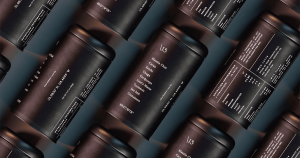By Katie Garry, Founder + CEO of Seek Health Test
If you’re a woman who drinks alcohol, there’s a good chance you’re familiar with mommy wine culture (AKA: when advertisers started trying to convince moms to drink more wine). These ads began popping up in the early 2000s. Most of them positioned wine as a healthy way for moms to relax and unwind from parenting stress. Ironically, the opposite is true, and most of the brands that paid for these ads knew this. But the ads worked, so brands kept paying for them.
When mommy wine culture took a turn
Fast forward to 2023: new data surfaces revealing that women are dying at higher rates of alcohol-related conditions than ever in history—by nearly 15%. In 2024, additional research came out revealing that this number was even higher than originally projected. It found that women in the US are dying of alcohol-related conditions at 35% higher rates. The odds are even worse in the UK, where alcohol-related deaths in women are up by 46%.
While all of this data is shocking, the most surprising insights focus on how much women who are being diagnosed with alcohol-related conditions actually drink. The majority aren’t heavy drinkers. In fact, most women with alcohol-related conditions consume somewhere between 8-14 drinks on an average week. This is a number that historically hasn’t been associated with adverse health or lifestyle effects. There’s a lot of research out there arguing that drinking small amounts of alcohol—especially red wine—is actually healthy.
The history of alcohol-related research
It’s important to note that alcohol-related research, especially studies focusing on women who drink alcohol, is lacking. Women weren’t even included in medical research until 1993. Since then, a lot of the data that has come out compares light or moderate drinkers who are otherwise healthy to sober people who had to stop drinking because they’re unhealthy (e.g., they have cancer or an autoimmune disease). In other words, older studies compared healthy people who drink to unhealthy people who don’t, which is why they were able to make claims that small amounts of alcohol are good for health. The healthy drinkers were already healthy and hadn’t experienced adverse effects from alcohol (yet).
More recent research that compares healthy people who drink to other healthy people who don’t drink paints the most accurate picture of how alcohol impacts women’s health. These studies have found that up to one drink a day can increase a woman’s risk for heart disease, breast cancer, and liver cirrhosis. More data is suggesting that alcohol is one of the leading causes of chronic gut-related issues, mental health symptoms, and skin conditions like rosacea and adult acne. It’s also telling us a lot of what we already know: alcohol is bad for our sleep, it can negate progress when it comes to our fitness goals, and it can make our experience during menopause feel far worse.
How alcohol impacts the female body differently
Drinking alcohol impacts the female body differently because of how we’re made physiologically. Women have more body fat and less water than men so we can reproduce. This makes us metabolize alcohol slower, which means it sits on our bodies for longer, exposing our organs for longer. While this may seem like a small difference, it adds up over time. It’s the reason that most alcohol-related conditions take 5-10 years to manifest as symptoms. It’s also the reason more women are dying from alcohol-related conditions than men.
The fact that women metabolize alcohol differently than men isn’t new or surprising information for doctors and researchers. The “healthy drink count” recommendation for women has always been slightly lower (e.g., one drink a day is cited as OK for women, whereas two drinks a day is cited as OK for men).
What every woman can do to lower risk
When it comes to changing our drinking habits to improve our health, the best thing every woman can do is prioritize preventive testing. We know that, the less we drink, the better the odds are for our health. For some women, cutting back or cutting out alcohol is easy. For others, especially for those who have been drinking for decades, it can feel impossible. It’s important to be kind to yourself and remember that changing your drinking habits isn’t something you can compare to anyone else.
If you choose not to cut out alcohol entirely, alcohol health testing is an easy way to monitor for early indicators of the leading alcohol-related conditions. Alcohol health testing can also help identify small modifications you can make to your drinking habits that make a clinical difference (e.g., cutting out drinks with artificial sweeteners, only drinking non-alc or low-ABV liquor, etc.). When we start by making changes to our drinking habits that are realistic, we’re more likely to stick to them long-term and drink less over time.






